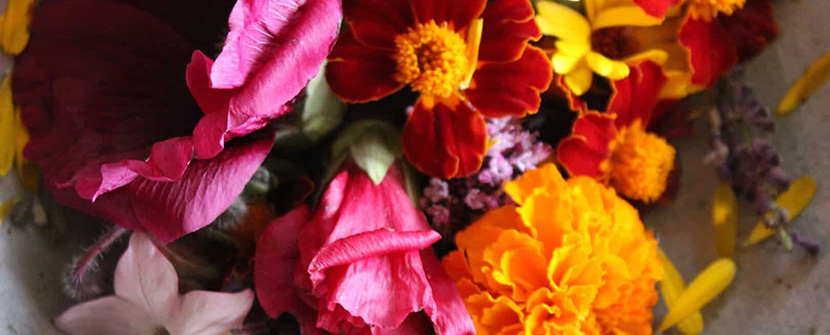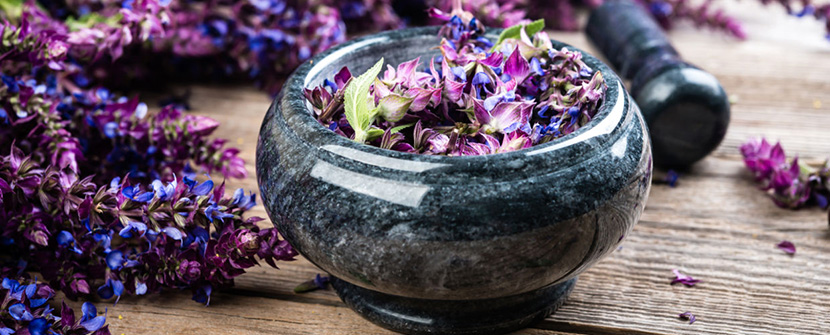Grief is an inevitable part of the human experience. Whether it stems from the loss of a loved one, a major life transition, or other personal hardships, grief can be a heavy burden to bear. While it is essential to allow yourself to grieve and seek professional support when necessary, nature offers a remarkable ally in the form of herbs. Herbs have been used for centuries to soothe the soul, calm the mind, and promote emotional healing. In this blog post, we'll explore the world of herbs for healing grief, providing you with valuable insights into their benefits and how to incorporate them into your life.
Lavender: The Soothing Scent of Serenity
Lavender, with its delicate purple blossoms and enchanting fragrance, is a well-known herb for relieving stress and anxiety. When it comes to grief, lavender can work wonders by helping to ease emotional turmoil. Lavender essential oil can be diffused in your living space or added to a relaxing bath to create a tranquil atmosphere, calming the mind and promoting better sleep.
Chamomile: Nature's Comfort Tea
Chamomile tea has long been celebrated for its calming properties. This herb is a gentle sedative, making it ideal for those experiencing insomnia or restlessness due to grief. A warm cup of chamomile tea before bedtime can help you relax and get the restorative sleep your body needs during challenging times.
St. John's Wort: Nature's Mood Booster
St. John's Wort is a popular herbal remedy for mild to moderate depression and anxiety. While it should be used cautiously and preferably under the guidance of a healthcare professional, it can be an effective tool for managing grief-related mood swings. The active compounds in St. John's Wort help increase the levels of serotonin, the "feel-good" neurotransmitter, in the brain.
Rose: The Symbol of Love and Healing
The delicate petals of the rose not only symbolize love but also possess powerful healing properties. Rose can be used in various forms to help heal grief. Rose essential oil can be diluted with a carrier oil and applied topically, or a few drops can be added to a warm bath. The aroma and soothing nature of roses can promote emotional healing and provide a sense of comfort.
Lemon Balm: Uplift Your Spirits
Lemon balm is a citrus-scented herb known for its ability to promote relaxation and alleviate stress. It is particularly helpful when grief is accompanied by feelings of anxiety or restlessness. Lemon balm tea can be sipped throughout the day to uplift your spirits and ease emotional tension.
Holy Basil: The Sacred Herb
Holy Basil, also known as Tulsi, is revered in Ayurvedic medicine for its adaptogenic properties. It helps the body adapt to stress and supports overall emotional well-being. Incorporating holy basil into your daily routine, either through tea or supplements, can help you navigate the ups and downs of grief with greater resilience.
Ashwagandha: Replenish Your Vitality
Ashwagandha is another adaptogenic herb that can assist in managing grief-related fatigue and emotional exhaustion. It helps the body adapt to stress and promotes vitality. This herb is available in various forms, including capsules, powder, and tinctures, making it easy to integrate into your daily wellness routine.
Frankincense: An Ancient Healer
Frankincense has a rich history as an ancient healer and is often used in spiritual practices. Its resin can be burned as incense to create a sacred and calming atmosphere. The deep, grounding aroma of frankincense can help you find inner peace during times of grief.
Sage: Purify and Release
Sage has long been used in various cultures for purification and releasing negative energy. Smudging with white sage, a practice where dried sage is burned, can help cleanse your space and your mind, allowing you to release pent-up emotions associated with grief.
Marjoram: Comfort for the Heart
Marjoram is known for its ability to comfort and soothe the heart, both physically and emotionally. You can use marjoram essential oil in a diffuser to create a warm and inviting atmosphere that promotes emotional healing.
Closing Thoughts
Herbs offer a gentle and natural way to support emotional healing during times of grief. However, it's essential to remember that while herbs can be beneficial, they should not replace professional mental health care when needed. Always consult with a healthcare provider or herbalist before incorporating new herbs into your wellness routine, especially if you are pregnant, nursing, or taking medications.
Incorporating these healing herbs into your daily life can be a beautiful and nurturing way to navigate the challenging journey of grief. Whether you choose to sip a soothing cup of chamomile tea, enjoy the calming aroma of lavender, or explore the sacred practices of burning sage, nature's bounty is here to support you on your path to healing.
Embrace the wisdom of herbs and let them guide you towards a place of peace and solace amidst the storms of grief.
Product Ad
Product Ad
Successful businesses have many things in common, today we’ll look at the big ‘R’of recognitional advertising network may help.
Recognition can be illustrated by two individuals entering a crowded room at a party.





